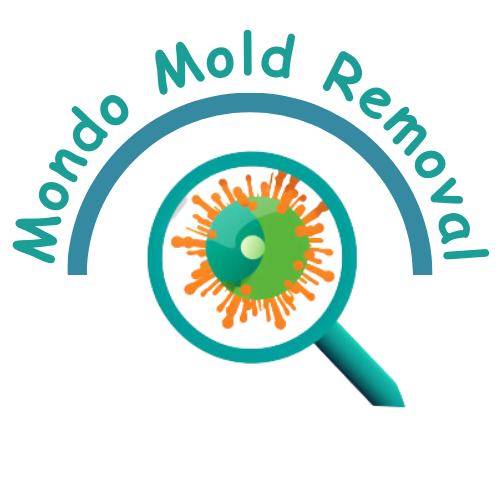You’re probably aware of how mold can negatively impact your indoor air quality and overall health. But did you know that air testing for mold spores is an essential step in identifying and addressing this issue? By analyzing the air in your home or workplace, you can detect the presence of mold spores, even when they are not visibly apparent. This article will explore the significance of air testing for mold spores, highlighting its role in preventing mold-related health problems and promoting a safe and healthy environment for you and your loved ones.
The Importance of Air Testing for Mold Spores

Understanding the Hazards of Mold Spores
mold spores are microscopic particles that can be found in the air we breathe. While mold is a natural part of the environment, excessive amounts of mold spores can pose significant health risks. When inhaled, these spores can trigger allergic reactions in some individuals, leading to symptoms such as sneezing, coughing, and nasal congestion. Moreover, prolonged exposure to mold spores can cause more severe respiratory problems, especially for those with pre-existing conditions such as asthma. Therefore, understanding the hazards associated with mold spores is crucial for maintaining a healthy living environment.
Identifying the Presence of Mold Spores
air testing for mold spores is a reliable method of identifying the presence of mold in indoor environments. By collecting air samples, professionals can analyze the concentration of mold spores and determine whether the levels exceed acceptable limits. High levels of mold spores indicate a potential mold infestation, even if no visible signs of mold are present. This early detection is essential as mold growth can occur in hidden areas such as behind walls or under carpets, going unnoticed until it becomes a more significant problem. By identifying the presence of mold spores, necessary actions can be taken to mitigate the issue and prevent further harm.
Assessing the Indoor Air Quality
Air testing for mold spores goes beyond identifying mold infestations. It also provides valuable information about the overall indoor air quality. Poor air quality can lead to various health problems and discomfort, including headaches, fatigue, and respiratory issues. By conducting air tests, you can assess the levels of mold spores as well as other airborne pollutants such as dust, pollen, and volatile organic compounds (VOCs). This comprehensive evaluation of indoor air quality allows you to identify potential sources of contamination and implement appropriate measures to improve the air you breathe.
Ensuring a Healthy Living Environment
One of the primary benefits of air testing for mold spores is the ability to ensure a healthy living environment. By identifying and addressing mold problems promptly, you can create a space that promotes overall well-being for you and your family. Mold growth is often associated with dampness and water damage, which can compromise the structural integrity of your home and lead to other issues such as rot and decay. By regularly testing the air for mold spores, you can take proactive steps to maintain a healthy living environment and prevent potential health risks.

Preventing Allergic Reactions and Respiratory Issues
For individuals prone to allergies or with respiratory conditions, exposure to mold spores can be particularly problematic. Allergic reactions to mold can range from mild symptoms like sneezing and rashes to more severe reactions such as difficulty breathing and asthma attacks. By conducting air tests for mold spores, you can identify areas of high concentration and take appropriate measures to minimize exposure. This proactive approach can help prevent allergic reactions and respiratory issues, allowing you to enjoy a comfortable and healthy living space.
Protecting Property and Investments
A mold infestation can have damaging effects on your property and investments. Mold growth can cause structural damage to buildings, leading to costly repairs and renovations. Additionally, mold can contaminate personal belongings such as furniture, clothing, and electronics, resulting in significant financial losses. By regularly testing the air for mold spores, you can detect mold growth at its early stages, preventing further damage to your property and safeguarding your investments. Timely intervention can save you from the headaches and expenses associated with extensive mold remediation.
Complying with Health and Safety Regulations
In many jurisdictions, health and safety regulations require regular inspections and monitoring of indoor environments, including air quality assessments for mold spores. Compliance with these regulations is not only essential for legal reasons but also for maintaining a healthy and safe working or living environment. Air testing for mold spores helps demonstrate your commitment to meeting these standards and ensures that you are providing a safe space for occupants or employees. By proactively conducting air tests, you can address any potential issues promptly and uphold the necessary health and safety requirements.
Guiding Remediation and Cleanup Efforts
If a mold infestation is discovered through air testing, it is crucial to take prompt measures for remediation and cleanup. The results of air tests can guide the remediation process, helping professionals determine the extent of the problem and developing an effective strategy for mold removal. By understanding the levels of mold spores present, remediation efforts can be targeted to eliminate the source of contamination and prevent further spreading. The guidance provided through air testing allows for a more efficient and comprehensive remediation process, ensuring the complete removal of mold and minimizing the risk of recurrence.
Monitoring the Effectiveness of Mold Remediation
After mold remediation has been conducted, it is essential to assess the effectiveness of the treatment to prevent any potential future problems. Air testing for mold spores can confirm whether the remediation efforts were successful in removing all traces of mold from the environment. By monitoring the air quality after the remediation process, you can ensure that the mold issue has been fully resolved and that the space is safe for occupancy. This step is crucial in preventing any further mold growth or related health concerns, as well as providing peace of mind knowing that the problem has been adequately addressed.
Aiding in Legal Situations
In some cases, air testing for mold spores may play a significant role in legal situations. For example, in cases of tenant-landlord disputes or insurance claims related to mold damage, air test results can provide objective evidence of the presence or absence of mold in a property. These test results can support your claims and help make informed decisions regarding legal actions or negotiations. By conducting air tests and having documented results on hand, you can ensure that your rights as a tenant or property owner are protected and that appropriate actions are taken to resolve any legal matters.
In conclusion, air testing for mold spores is essential for various reasons. It helps identify the presence of mold, assesses indoor air quality, ensures a healthy living environment, and prevents allergic reactions and respiratory issues. Additionally, it protects property and investments, complies with health and safety regulations, guides remediation efforts, and monitors their effectiveness. Furthermore, air testing aids in legal situations by providing objective evidence of the mold’s presence or absence. By recognizing the importance of air testing for mold spores, you can prioritize the well-being of yourself, your family, and your property.





